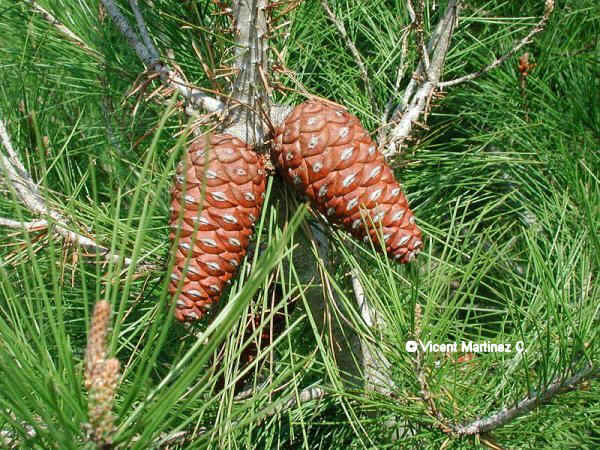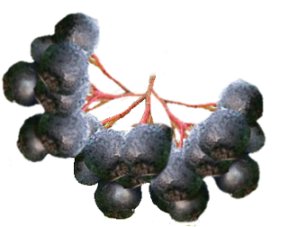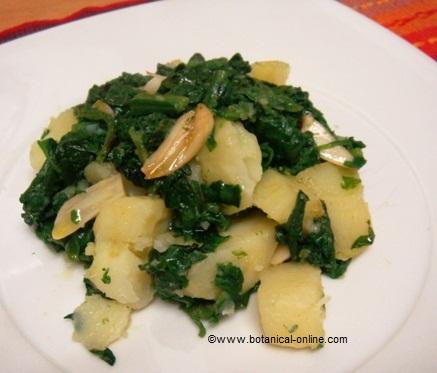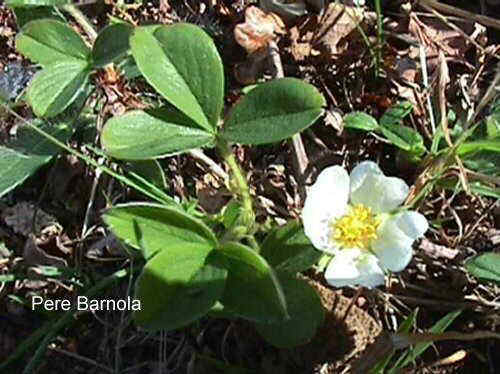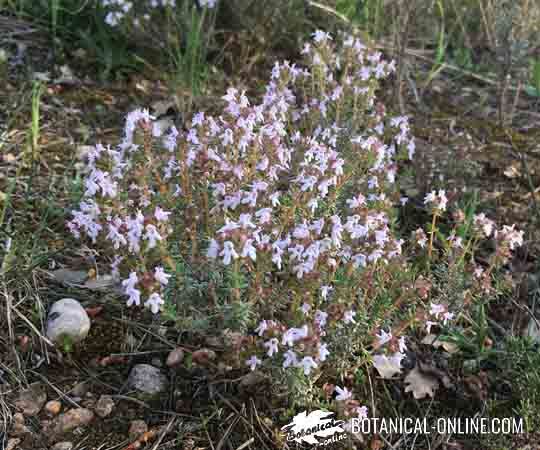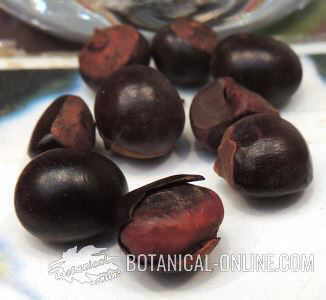Contents
- 1 Medicinal properties of juniper berries
- 2 CURRENT USES OF JUNIPER
- 2.1 INTERNAL USE PREPARATIONS WITH JUNIPER
- 2.2 Juniper is a very good diuretic
- 2.3 Juniper, a good appetizer and stomach tonic
- 2.4 Juniper dry berries: a remedy against chest diseases
- 2.5 USES AND PROPERTIES OF JUNIPER OIL FROM DRIED BERRIES, NEEDLES OR WOOD
- 2.6 A good skin repairer
- 2.7 Juniper berries can be used as a good analgesic for the sore muscles and joints
- 2.8 Be careful with allergies
- 2.9 Precautions and toxicity of the juniper
Medicinal properties of juniper berries
MEDICINAL PROPERTIES OF JUNIPER
Traditional use of juniper
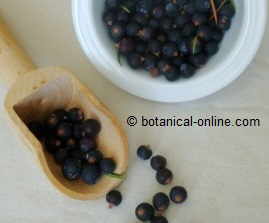
Juniper fruits, called juniper berries, used in food as an aromatic spice
Traditionally, this plant has been widely used to remedy many diseases. The Greek physician and botanist Dioscorides in his Materia Medica says that this plant is suitable to heat the body and cause the urine.
Speaking of its fruit, the liquid obtained by decoction, says: “The liquid drunk goes against the passions of the chest, against cough against the winds, against stomach cramps and against the bites of poisonous animals. In addition, it makes you urinate, and it is useful to breaks and spasms of the nerves, and the suffocation of the mother.”
Years later, the Segovian pharmacologist Andrés Laguna says on this plant that produces a resin which, mixed with flax oil, used to obtain a varnish called Grass, which, in addition to polish the paint and varnish iron, is used as a remedy for the treatment of pain and lower piles.
On the resin of juniper, he also says that it is useful for treating colds, for excessive menstruations and stomach worms.
Nicholas Culpeper, (1616 – 1654) physical and apothecary of London, says on the berries of this plant: “They are excellent against the bites of venomous beasts, causing much urine, so they are well suited for dysuria and strangury (*). It is a remedy against gout so powerful that its lye, made with the ashes of the grass, when drunk, cures the disease.
Raises the period, helping to stem attacks, with a much stronger stomach and expels flatus. Indeed there is hardly any better remedy for flatulence anywhere in the body or for colic than the chemical oil obtained from the berries. The country people as they know how to extract the chemical oil, are content to eat ten or twelve ripe berries at breakfast every morning.”
Culpeper goes on writing on juniper berries and says: “They are remarkably good for cough, shortness of breath and tuberculosis, stomach pain, fractures, muscle cramps and seizures.
Freed quickly and safely to pregnant women, strengthen the brain extremely, help memory, vision and strengthen the optic nerves: they are extremely good for all types of sentences; help in gout and sciatica, and strengthen the limbs.
The ashes of the wood, which are scrubbed gums are a good choice for those with scurvy. Berries stop fluids, help to hemorrhoids or piles, and kill worms in children. A lye made from wood ashes, which bathes the body, heals scabies, scab and leprosy. Berries melt the rocks, seeking the appetite when you lose, and are excellent for all types of paralysis, and epilepsy.”
Paiute Indians made a tonic drink that was based on common juniper to treat syphilis.
(*) Dysuria= Pain when urinating; Strangury = Difficulty to urinate
CURRENT USES OF JUNIPER
INTERNAL USE PREPARATIONS WITH JUNIPER
Juniper is a very good diuretic
The diuretic properties of juniper derive from the ability of apigenin and glycolic acid, chlorogenic, caffeic and ascorbic acid of the fruit to stimulate the kidneys and increase urine production. Diuresis occurs as a result of the irritant effect of these components on the renal parenchyma.
Its richness in potassium and calcium counteracts the sodium and contributes to the same purpose. The ability to increase urine output can be exploited in diseases such as:

Juniper can be useful for people with arthritis because of its analgesic and antiinflammatory properties that can improve the conditions of these patients
- Rheumatoid Arthritis: In the treatment of rheumatism the ability to increase urine combined with analgesic and antiinflammatory properties to improve the conditions of these patients by helping reduce inflammation of arthritis that causes swelling in the joints, eliminating the accumulation of serosities and reducing pain.
There is evidence that this plant contains over 30 antiinflammatory compounds, among which many of its flavonoids and its terpenoids and other components specifically antirheumatic mainly ascorbic acid, carotenoids, selenium, zinc and menthol (Decoction of 1 tablespoon of dried fruit per liter of water. Drink 2 or 3 cups per day.
- Gout: The ability to increase urine output is very appropriate in the treatment of gout. (Infusion for 10 minutes of half a teaspoon of crushed nuts per cup of water. Drink 3 cups a day)
- Dropsy. Especially recommended for the treatment of fluid retention or dropsy. It helps to reduce the swelling that occurs in the ankles, legs or hands. (Decoction of dried fruit 1 tablespoon per quart of water. Drink 2 or 3 cups per day)
- Grit in the kidneys: It facilitates the removal of gravel formed in the kidneys and prevents the formation of kidney stones. However it should be noted that prolonged ingestion of this plant can produce albuminuria or presence of albumin in the urine. (Infusion of half a teaspoon of dried berries per cup of water. Take a couple of cups a day between the two main meals)
- Hypertension: The use of this plant is helpful in the treatment of hypertension. By removing excess fluid artery pressure is reduced. (Infusion for 10 minutes to half a teaspoon of crushed nuts per cup of water. Drink 3 cups a day)
Juniper, a good appetizer and stomach tonic
Juniper can be used to whet appetite and to facilitate digestion. The anti-anorexic properties come from its zinc content, while its bitter compounds, among which the juniperin, increase stomach acid production, whetting the appetite and aiding digestion.
Digestive improvements are also reflected in a lower incidence of problems associated with poor digestion such as flatulence, aerophagia, dyspepsia or pain in the upper abdomen and heartburn (maceration of 50 g of dried cherries in a quart dry white wine for a couple of weeks. Drink a glass before meals)
Juniper dry berries: a remedy against chest diseases
Juniper has expectorant properties that give it its rich in terpenes and terpenoids. It is also a good antiseptic and antispasmodic. This makes it appropriate to remedy respiratory diseases such as cold, the bronchitis, sinusitis or the pharyngitis (a spoonful of dry berries by liter of water during 15 minutes. To drink throughout the day sweetened with honey)
The above properties, combined with the anti-asthmatic property of terpineol and terpinen-4-ol, grant it the ability to treat asthma. The use of this plant helps soothe coughing and spasms of the people affected by this disease (5 spoons maceration of dried cherries in a quart of white wine for 7 days. Strain and drink a few glasses a day)
USES AND PROPERTIES OF JUNIPER OIL FROM DRIED BERRIES, NEEDLES OR WOOD

Main medicinal properties of Juniper
A good skin repairer
For external use, it is primarily used its essential oil obtained by steam distillation of dried berries. needles or wood. This oil has antiseptic, astringent, healing and vulnerary properties making it very convenient for the external treatment of skin abnormalities, especially in regard to the following conditions:
- Acne: In addition to alphapinene and alphaterpineol, oil acne contains other components such as zinc, selenium, chromium, beta carotene and camphor. (Diluted about 10 drops of essential oil in a glass of water. Wet a towel with the liquid to the affected area for acne)
- Eczema: The previous treatment may be appropriate to remedy eczema.
- Dermatitis: Apply the same treatment in case of dermatitis.
Juniper berries can be used as a good analgesic for the sore muscles and joints
Besides the repairing properties of the skin, juniper is used in external use for the treatment of muscle pain or treatment of joint pain due to gout or rheumatic diseases. (Dilute about 10 drops of juniper essential oil in 100 drops of Olive oil. Rub on the painful area) (Marinate a tablespoon of dried cherries in half a glass of alcohol at 60 degrees for a week and a half. Rub on painful area)
Be careful with allergies
The increased use of plants such as juniper, savin juniper, cypresses or ornamental thuja has contributed to the increase of the cases of pollen allergy. The members of Cupressaceae family produce the greatest amount of pollen. Their pollen is one with the greatest allergenic power.
The pollen of this plant is especially important during the months of February and March and may continue until April. Many of the symptoms such as sneezing, runny nose, watery eyes, etc., may be confused with the common cold, so they go undiagnosed.
If you live in an area where there are lots of these plants and you have these symptoms, you should make a visit to the doctor to find the true causes of the problem.
Precautions and toxicity of the juniper
This plant, by its capacity to irritate the renal parenchyma, is not recommended in cases of intestine and kidneys disease (nephritis, renal failure, prostatitis, etc.).
Pregnant and nursing women do not have to take preparations from juniper. In case of pregnancy, the juniper can produce abortions by exciting uterine contractions.
This is especially remarkable in case of essential oil. (More information about juniper toxicity)
![]() More information on juniper.
More information on juniper.

